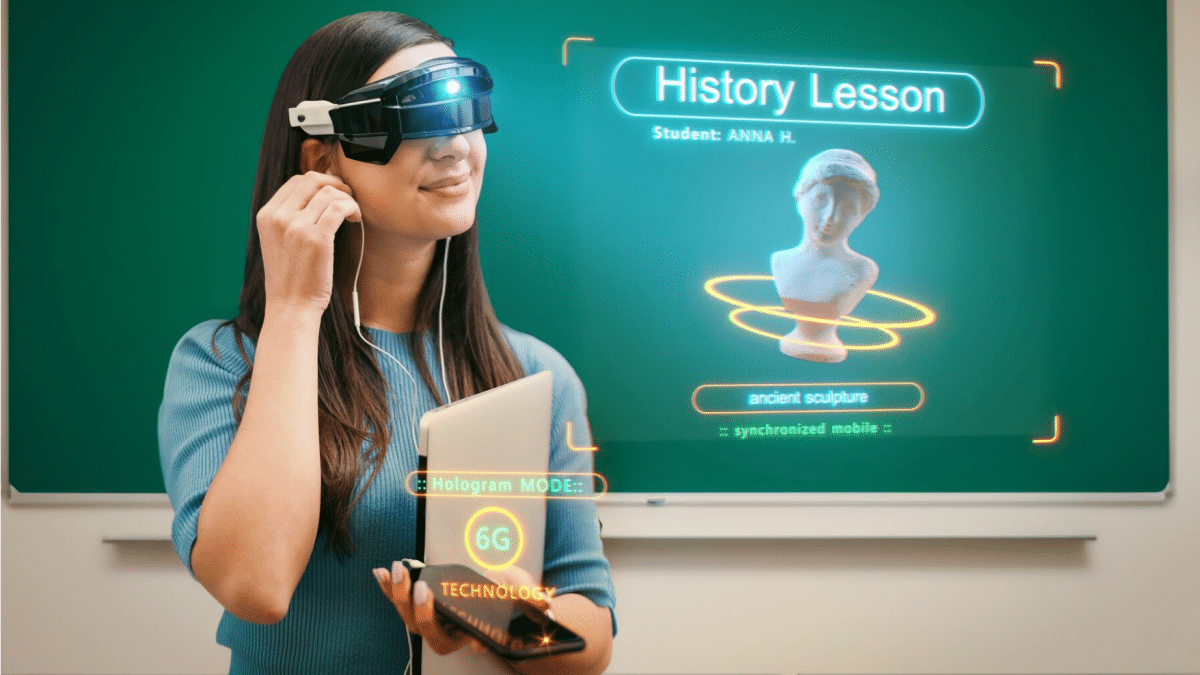Contents
- Introduction
- The effects of technology on education
- Predictions for the future of education
- Personalized learning and adaptive technology
- Virtual and augmented reality in education
- Artificial intelligence in education
- Gamification and game-based learning
- Online learning and remote education
- Abilities and skills for the destiny workforce
Introduction
Future education is developing quickly due to changes in social requirements and technological advancements. As the world becomes more networked, conventional classrooms have been replaced with new, flexible studying settings. This post examines the developments and projections that are anticipated to have an effect on schooling in the coming years.
The effects of technology on education
Every element of our lives has been transformed by technology, and schooling is not unique. Technology integration in the lecture room has accelerated scholar engagement and made studying more dynamic. Through the usage of educational programs and interactive whiteboards, technology has given instructors additional resources to improve their education manner.
Customised learning, which uses artificial intelligence (AI) and data analytics to adjust the learning process for each student individually, is what will define education in the future. This will increase student engagement and academic achievement.
Furthermore, the combination of augmented reality (AR) and virtual reality (VR) produces immersive settings that offer interactive research and increase the number of educational options, including 3-D simulations and virtual field trips.
Predictions for the future of education
Online education will truly emerge as more regularly occurring in the future of schooling, giving students flexibility and access to academic materials around the world. Artificial intelligence can provide individualised guidance and data-driven insights through chatbots and virtual instructors. These tools can improve student learning by offering customised guidance and recommendations.
Personalized learning and adaptive technology
A revolutionary method called personalised learning adjusts training to the unique requirements and interests of every student. Teachers can design individualised learning pathways that accommodate students’ unique learning preferences, skills, and interests by utilising technology. This method encourages student autonomy, participation, and skill mastery.
Adaptive technology performs a crucial role in personalised knowledge by constantly assessing scholar progress and adjusting the learning experience for this reason. The usage of algorithms to assess data and offer tailored guidelines, and adaptive learning structures make certain that students get the assistance they require to succeed. Adaptive technology can help make education more student-centered by giving students the tools they need to take charge of their education.
Virtual and augmented reality in education
Students learning and engagement with content material are changing because of virtual reality (VR) and augmented reality (AR). The realistic and engaging learning environments produced by way of immersive technology enhance students’ comprehension and recall of difficult subjects.
VR allows experiential mastering by permitting college students to discover impractical situations, from virtual field trips to ancient Rome to interactive frog dissections. AR overlays virtual data onto the real world, bringing records to lifestyles and visualizing clinical phenomena, fostering interactive and contextualized knowledge of reviews that deepen understanding and enhance scholar engagement.
Artificial intelligence in education
Artificial intelligence (AI) can revolutionize training with the aid of manner of automating administrative responsibilities, personalizing schooling, and offering realistic tutoring. AI-powered chatbots can help college students in real-time, answering questions and providing guidance. This immediate feedback complements pupil mastering and saves instructors precious time.
AI algorithms can examine massive amounts of student data to identify patterns, are expecting performance, and suggest customized mastering paths. With the aid of tailoring instruction to individual needs, AI can improve scholarly consequences and make certain that each student reaches their complete capability.
Gamification and game-based learning
Gamification is the mixing of sport factors and mechanics into non-recreation contexts, which includes training. By incorporating game-like elements such as challenges, rewards, and leaderboards, educators can motivate students and make getting to know more exciting.
Sport-based mastering takes gamification a step in addition by using educational games because the primary way of training. Those video games are designed to interact college students while teaching them precise abilties or standards. With the aid of turning gaining knowledge of right into a sport, educators can create an immersive and interactive learning experience that promotes active participation and deep expertise.
Online learning and remote education
Online learning has received giant reputation in latest years, and the COVID-19 pandemic has multiplied its adoption. With on line studying, college students can get entry to academic sources and interact with teachers and classmates from the consolation in their houses.
Online learning platforms, with diverse courses and flexible options, meet individual learning needs and offer accessibility beyond traditional education. Remote education, utilizing video conferencing and collaborative tools, enhances global connections and cultural exchange, preparing students for an interconnected future by facilitating participation and collaboration irrespective of geographical location.
Abilities and skills for the destiny workforce
As the task marketplace evolves, training have to prioritize now not only subject-precise information but also critical questioning, hassle-solving, communique, and flexibility. Collaboration and digital literacy are important, emphasizing the want for assignment-based and experiential getting to know to put together college students for diverse, actual-global challenges. By using fostering those abilities, schooling empowers college students to thrive in a dynamically changing personnel.
Embracing educational improvements, along with personalized studying, virtual truth, synthetic intelligence, and on-line education, is important for developing an inclusive and dynamic mastering environment. Staying in advance of the curve prepares college college students for the demanding conditions and possibilities of tomorrow. The destiny of training is promising, with technology-pushed strategies shaping an empowered, talent-geared up technology prepared for a unexpectedly changing world. Collectively, permit’s embrace this destiny, growing a brighter educational panorama for all.

